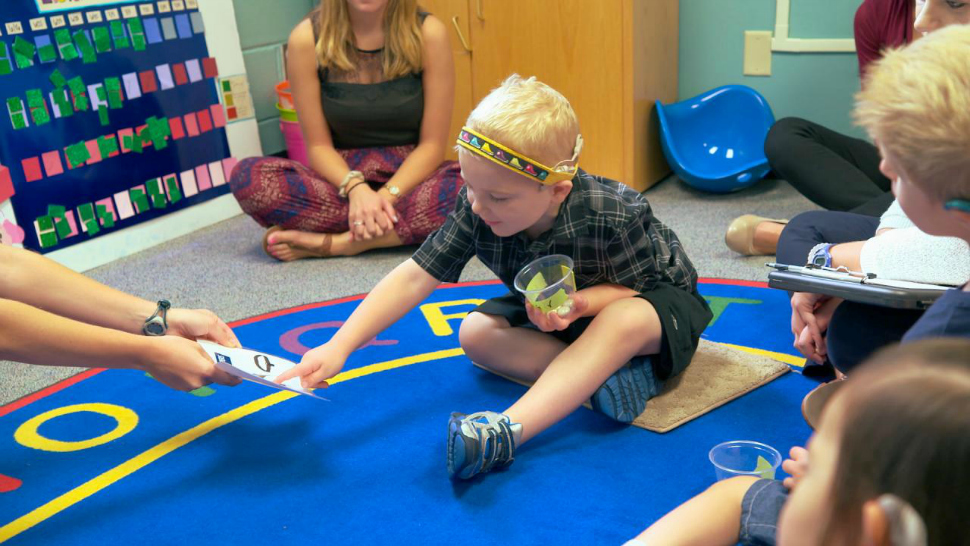John Tolley, October 15, 2016
Murph Hutson and his son Camden, age four, are up at 6 AM every Tuesday and Thursday.
By 6:30 they?re on the road. It?s a two hour drive from Urbandale to Iowa City. They?ve done this for six weeks every summer for the past three years.
This might sound like a typical father-son bonding moment but it's not. It's a trip full of purpose.
?Camden was born deaf,? says Hutson. ?We ended up doing four surgeries to have his cochlear implants put in. We were lucky enough to be invited, a couple years ago, to an event at the University of Iowa called Focus. [It] allowed us to see what services he really needed. That?s how we found out about the program, Listen and Speak Up.?
Listen and Speak Up, a summer preschool operated by the University of Iowa Department of Communication Sciences and Disorders, serves children between the ages of two and a half and five who suffer from hearing loss. Working closely with the children are Iowa graduate students in the fields of audiology, who deal with the hearing issues, and speech pathology, who facilitate language.
?[Listen and Speak Up] has two primary focuses,? says program coordinator Anne Wallace, a clinical associate professor of speech pathology. ?One is to help augment skills building for children with hearing loss, and then secondly to provide a forum for our students to develop skills working with that population and their families.?
The children learn through play, and are assigned a team of graduate students who design activities and set goals specific to their needs. Activities include individual sessions, group play, and music therapy. Even snack time is used as a socialization and learning experience for the kids. And for the student-teachers, like audiology doctoral candidate Kelsey Dumanch, Listen and Speak Up is an experience that is just as beneficial for their training as it is for the kids.
?Being able to work with patients,? says Dumanch, ?and make recommendations not only because I learned about it in a book, but being able to tie this back to my experiences and say, ?I worked in this pre-school and this is what I saw?, it really makes those recommendations more meaningful and more salient for families and parents.?
Listen and Speak Up also aims to equip the families of these children with the skills they need to facilitate advancement year round. The student-teachers explain to parents what they are working on with the children, their goals and how they set about accomplishing them, and the next steps to take at home.
?It?s so exciting to have wonderful families to work with,? notes Wallace. ?You?re helping them recognize that this is a child first, this is a child with hearing loss second, and these are all of the things your child can do. Sometimes that?s the first time they?ve heard it. We teach the parents to be teachers.?
For Hutson, Camden?s time in the program has been an incredible journey, from a toddler that couldn?t answer yes or no questions to a child that can?t wait to get into the classroom.
?We?ve seen progress that we couldn?t even believe,? he says. ?We call his cochlear implants his ears. He doesn?t want to take them off because he wants to hear and he wants to communicate. The reason he does is because everybody is encouraging him and it starts right here at Listen and Speak Up.?







